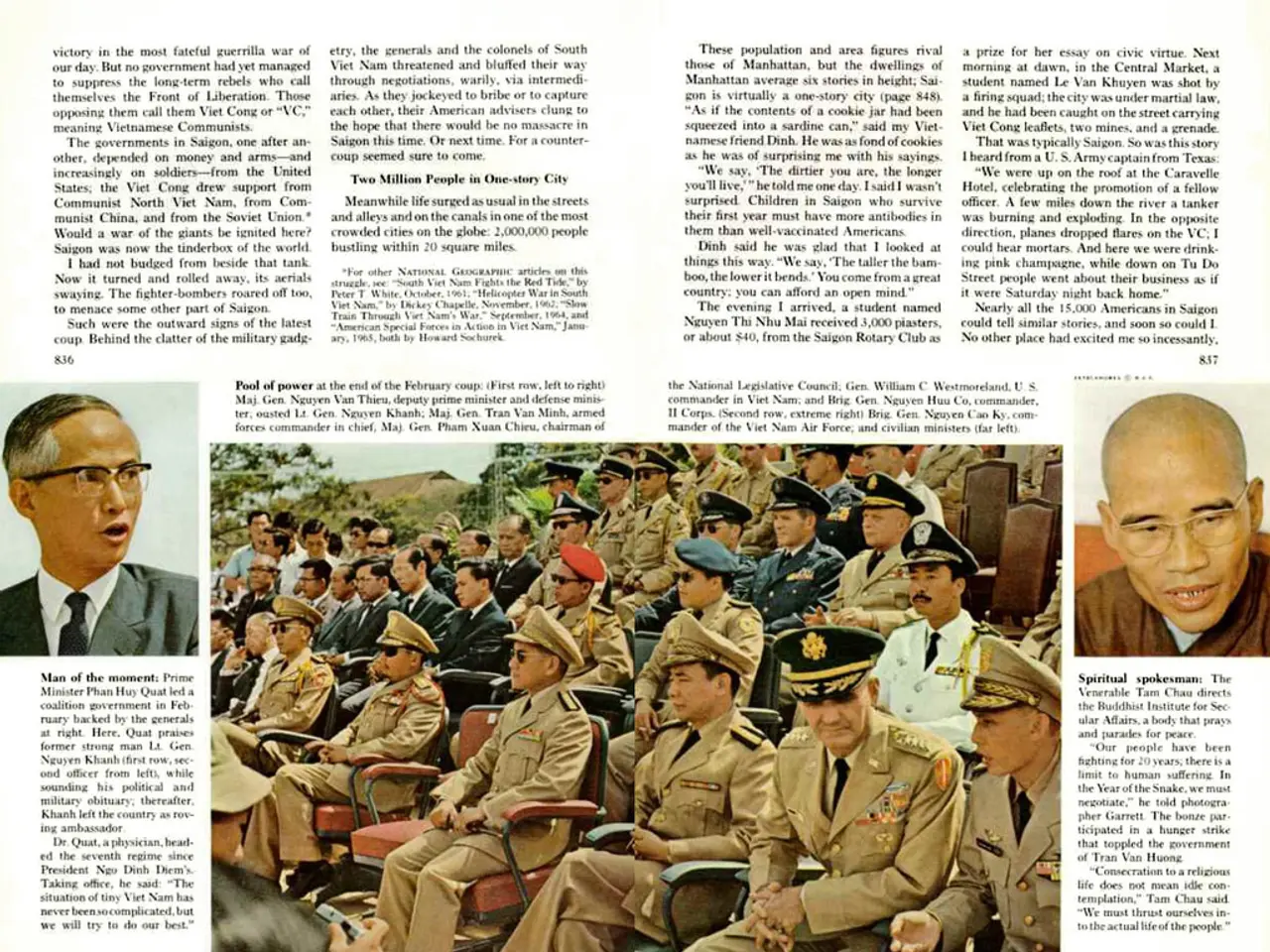Trump's glorious epoch wanes as European allies grapple with a stern new reality
In the aftermath of the re-election of President Donald Trump, leaders in Central and Eastern Europe and the Balkans are grappling with a new reality. The US's aggressive use of tariff threats and uncompromising policies towards these regions have exposed the limits of ideological alignment and sown doubts among many.
The US Secretary of State, Marco Rubio, has condemned Milorad Dodik's signing of separatist laws that challenged Bosnia and Herzegovina's constitutional order. Meanwhile, US Government officials have made clear to both Hungary and Serbia that China poses a "strategic challenge." These actions reflect a broader shift towards protectionism and assertive economic nationalism, which clashed with optimistic expectations for a more conciliatory second Trump term.
One of the key factors driving this change is the use of tariff threats as negotiation leverage. Trump threatened high tariffs (up to 50% in some cases) on European imports, forcing the EU to accept an asymmetrical deal heavily favoring US interests. The EU had to agree to concession packages—including buying large volumes of US liquefied natural gas, weapons, agricultural products, and reducing trade barriers—to avoid harsher tariffs.
The US demanded terms that produced clear American "wins" rather than seeking balanced trade arrangements. This asymmetry, coupled with unilateralism, gave the US an upper hand in exploiting divisions within the EU. Some member states advocated immediate retaliation, while others urged negotiation, complicating EU responses.
Beyond tariffs, the US sought to deepen strategic partnerships through massive energy and investment commitments. These commitments, framed domestically as "wins" for American farmers, manufacturers, and workers, reinforced Trump’s political capital and justified his tough stances.
This new approach has had significant consequences for some of the region's leaders. Hungary's Prime Minister, Viktor Orbán, who had predicted a "fantastic, great golden age" in Hungarian-American relations, is now facing stinging tariffs, US sanctions against members of his government, and public denouncements by Republicans.
The US has shown interest in Central and Eastern Europe and the Balkans historically. Leaders such as Hungary's Viktor Orbán, Serbia's Aleksandar Vučić, and Bosnia and Herzegovina's Serb leader, Milorad Dodik, have found themselves under scrutiny. On 2 April, Serbia was hit with a 37 percent tariff rate on its exports, Bosnia and Herzegovina was slapped with a 35 percent levy, and Hungary faces a potential 20 percent charge on exports.
The new administration in Washington is treating these cheerleaders in a business-like and imperial manner, viewing some as having "no cards" to play. Many European leaders are pessimistic about what this will mean for multilateral institutions and the fate of Ukraine.
Peter Kreko, the executive director of Political Capital, a Budapest-based independent think tank, and Ferenc Németh, a Western Balkans expert and a PhD Candidate at the Corvinus University of Budapest, are among those closely watching these developments. Donald Trump Jr has made clear visits to Budapest and Belgrade to call for both nations to decouple from powers in the East and prioritize US economic engagement.
However, in the longer term, citizens may question the benefit of championing the US president's policies and may conclude that their future prosperity and freedom lie with the European Union. The re-election of Donald Trump has been a chastening period for the leaders and citizens of these countries, but the future of their relationships with the US remains uncertain.
- Civil society organizations in Central and Eastern Europe and the Balkans are discussing the impact of US migration policies, particularly those related to tariff threats and uncompromising policies towards these regions, on their general news landscape, as the re-election of President Donald Trump has led to a shift towards protectionism and assertive economic nationalism.
- The US's hardline policies on war-and-conflicts, such as the imposition of heavy tariffs on European imports and the sanctioning of countries like Serbia, have raised questions about the future of policy-and-legislation in the region, causing concern among leaders and citizens alike, who are now questioning the benefits of championing US policies.
- The new administration in Washington is redefining its approach to Central and Eastern Europe and the Balkans, treating some of the region's leaders like business partners in a war-and-conflicts context, and this shift may have implications for migration policies, as some leaders may consider reorienting their focus towards China, the EU, or other global powers in the face of US tariff threats and sanctions.






